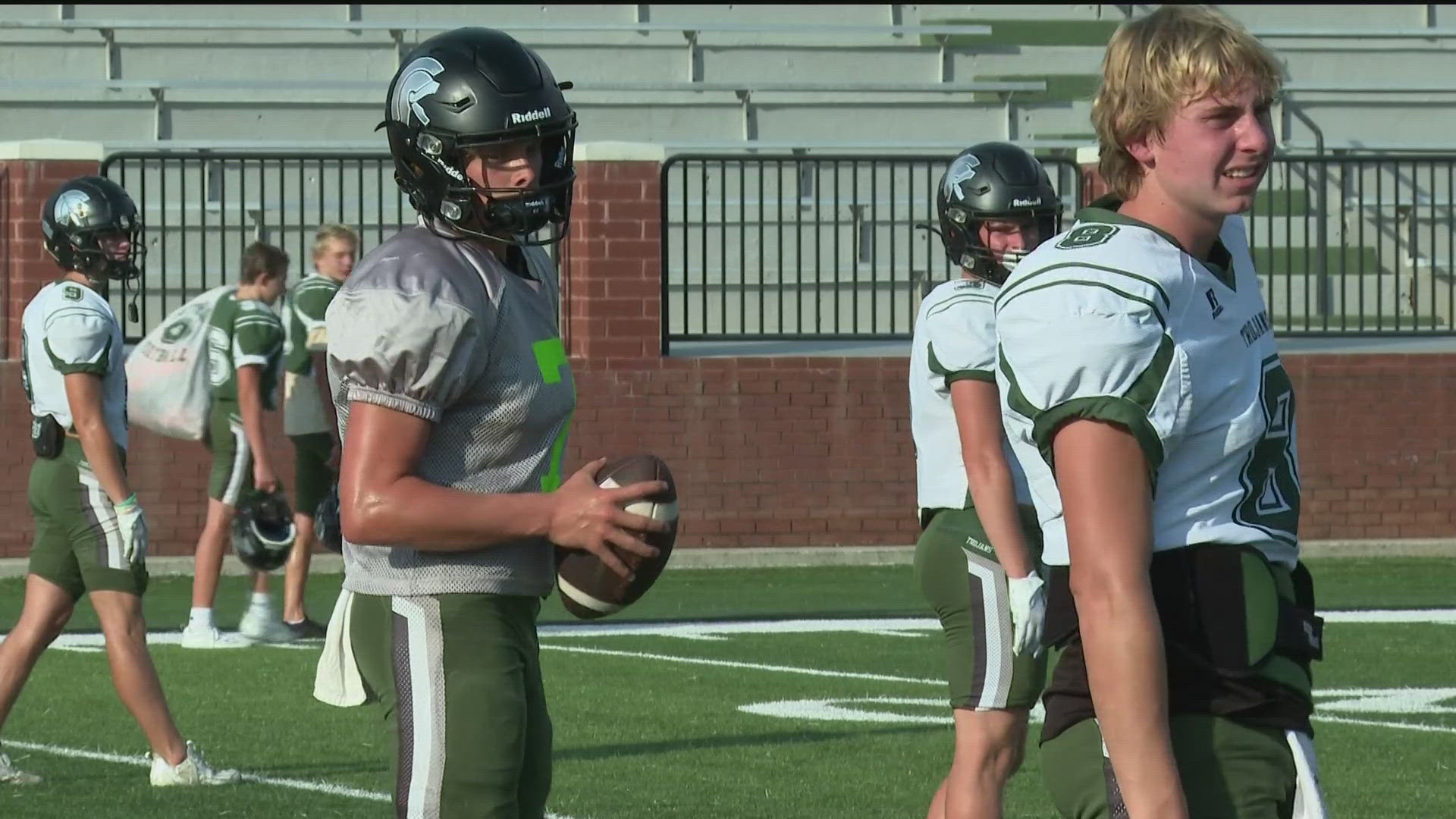HALL COUNTY, Ga. — Just days before he takes his first snap of the season, Alex Schlieman takes reps in practice on North Hall High School's football field. The sophomore quarterback is coming off a broken foot and hopes to win a position battle to open the season.
"I just love the competition," Schlieman said. "Every day, you have to come out and compete no matter what."
Head football coach Sean Pender preaches physical, mental and spiritual toughness through the acronym EAT. It stands for effort, attitude and toughness. Now in his third year coaching North Hall and 27th year coaching football, Pender has seen all sorts of injuries, from ACL tears to shoulder and upper body injuries to head trauma injuries.
"You're always concerned about injuries," Pender said. "It's always in the back of your brain. You want your guys to give 100 percent effort, but at the same time, you want to make sure they stay healthy."
In staying healthy, Hall County student athletes are getting help from a headset. Dr. Greg Myer directs the Emory Sports Performance and Research Center. With help from Atlanta Rehab and a $4.5 million donation from the Arthur M. Blank Foundation, Emory SPARC was able to launch GIVES, which stands for the Georgia Initiative for Virtual Reality in Education and Sport. Utilizing Meta Quest headsets, the program relies on Rezzil sports software to track eye movement, measure reaction time and gauge how athletes respond in certain scenarios.
"There are parts of the mind that actually affect how we perform and increase our injury risk," Myer said. "We're implementing any type of tool that can measure brain activity or sensory-motor control or what's happening in that central nervous system that's driving our body mechanics."
Myer said groundbreaking advancements in virtual reality and its cost-effectiveness over time have helped make this a reality. Emory SPARC is also working on sideline concussion testing research to help athletes during games. Myer said the goal was to eventually roll out the technology for all students across Georgia.
Schlieman has spent a couple of weeks using the technology. He said he's hopeful it will lead to a healthy year that will see his teammates bond over the game they love.
"I think it'll help us with reflexes some and using peripheral vision more," Schlieman said. "We got to put those on and go through all the different tests and stuff. We got to catch virtual footballs and everything. I believe it’ll prevent more injuries from occurring, especially like ACL and foot injuries, because those will put you out for a while.”

